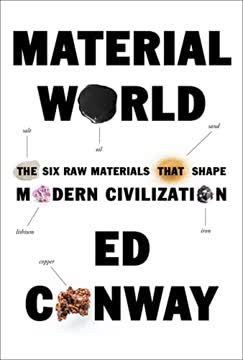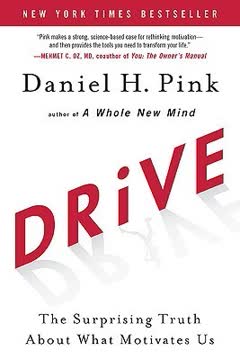نکات کلیدی
1. مبانی اقتصادی: دست نامرئی و دینامیک عرضه و تقاضا
تصور ساده این است: هیچ اشکالی در عمل کردن افراد به نفع خود وجود ندارد. در یک بازار آزاد، نیروی ترکیبی همه افرادی که به دنبال منافع فردی خود هستند، به نفع جامعه بهطور کلی است و همه را ثروتمندتر میکند.
دست نامرئی سنگ بنای اقتصاد بازار آزاد است که پیشنهاد میکند اقدامات خودخواهانه بهطور جمعی به نفع جامعه است. این مفهوم که توسط آدام اسمیت معرفی شده، توضیح میدهد که چگونه نیروهای بازار بهطور طبیعی منابع را بهطور کارآمد بدون برنامهریزی مرکزی تخصیص میدهند.
عرضه و تقاضا مکانیزم اصلی اقتصادهای بازار را تشکیل میدهند:
- تقاضا نشاندهنده تمایل مصرفکنندگان به خرید در قیمتهای مختلف است.
- عرضه نشاندهنده تمایل تولیدکنندگان به فروش در نقاط قیمت مختلف است.
- قیمت تعادلی جایی است که عرضه با تقاضا ملاقات میکند.
تعامل بین عرضه و تقاضا قیمتها، سودها و تخصیص منابع در اقتصاد را تعیین میکند. این فرآیند پویا در اکثر موارد به نتایج کارآمد منجر میشود، هرچند که در برخی شرایط ممکن است شکستهای بازار رخ دهد.
2. مزیت نسبی: کلید تجارت بینالملل و تخصصگرایی
یک گزاره در تمام علوم اجتماعی به من نام ببرید که هم درست باشد و هم غیرمعمول.
مزیت نسبی که توسط دیوید ریکاردو توسعه یافته، نشان میدهد که کشورها از تخصص در تولیداتی که در آنها مزیت نسبی دارند و تجارت با دیگران بهرهمند میشوند. این اصل حتی زمانی که یک کشور در تولید تمام کالاها مزیت مطلق دارد، نیز صدق میکند.
پیامدهای کلیدی مزیت نسبی:
- تشویق به تجارت بینالملل و تخصصگرایی
- منجر به افزایش تولید و مصرف جهانی
- توضیح میدهد که چرا تجارت آزاد میتواند به نفع تمام کشورهای شرکتکننده باشد.
در حالی که منتقدان استدلال میکنند که این نظریه پیچیدگیهای دنیای واقعی را سادهسازی میکند، اما همچنان یک مفهوم بنیادی در اقتصاد بینالملل و سیاستهای تجاری باقی مانده است.
3. ارکان کلان اقتصادی: تولید ناخالص داخلی، تورم و سیاستهای بانک مرکزی
تورم همیشه و در همه جا یک پدیده پولی است.
تولید ناخالص داخلی (GDP) مجموع تولید اقتصادی یک کشور را اندازهگیری میکند و بهعنوان یک شاخص کلیدی از سلامت و رشد اقتصادی عمل میکند. این شامل مصرف، سرمایهگذاری، هزینههای دولتی و صادرات خالص است.
تورم، افزایش عمومی سطح قیمتها، قدرت خرید را کاهش میدهد و میتواند در صورت عدم کنترل، اقتصادها را بیثبات کند. بانکهای مرکزی از ابزارهای مختلفی برای مدیریت تورم استفاده میکنند:
- تنظیم نرخ بهره
- عملیات بازار باز
- الزامات ذخیره
بانکهای مرکزی نقش حیاتی در هدایت اقتصادها ایفا میکنند و تعادل بین رشد و ثبات قیمت را برقرار میسازند. سیاستهای آنها بر همه چیز از سطح اشتغال تا ارزش ارز تأثیر میگذارد و آنها را به بازیگران اقتصادی قدرتمندی تبدیل میکند.
4. تکامل سیستمهای اقتصادی: سرمایهداری، کمونیسم و اقتصادهای مختلط
نظریه کمونیسم را میتوان در یک جمله خلاصه کرد: تمام مالکیت خصوصی را لغو کنید.
سرمایهداری با مالکیت خصوصی، بازارهای آزاد و انگیزه سود مشخص میشود. این سیستم در تولید ثروت مؤثر بوده اما میتواند به نابرابری و شکستهای بازار منجر شود.
کمونیسم، همانطور که کارل مارکس تصور کرده بود، به مالکیت مشترک وسایل تولید و لغو طبقات اجتماعی تأکید داشت. در حالی که بهطور نظری برابری را ترویج میکند، پیادهسازیهای واقعی اغلب به ناکارآمدی اقتصادی و سرکوب سیاسی منجر شده است.
اقتصادهای مختلط سعی در تعادل بین عناصر سرمایهداری و سوسیالیستی دارند:
- فعالیتهای اقتصادی عمدتاً با کارآفرینی خصوصی
- مداخله دولت در بخشهای کلیدی (مانند بهداشت و درمان، آموزش)
- شبکههای ایمنی اجتماعی برای مقابله با شکستهای بازار
بیشتر اقتصادهای مدرن در این طیف قرار دارند و ترکیبی از نیروهای بازار با درجات مختلفی از تنظیمات دولتی و برنامههای اجتماعی را ارائه میدهند.
5. بازارهای مالی: اوراق قرضه، سهام و خطرات سفتهبازی
زمانی که دیگران طمع میکنند، بترسید و تنها زمانی طمع کنید که دیگران میترسند.
بازارهای اوراق قرضه تسهیلکننده وامگیری دولت و شرکتها هستند و نقش حیاتی در تأمین مالی فعالیتهای اقتصادی ایفا میکنند. قیمتها و بازدههای اوراق قرضه، بازتابدهنده درک بازار از ریسک و شرایط اقتصادی هستند.
بازارهای سهام به شرکتها اجازه میدهند تا سرمایه جذب کنند و به سرمایهگذاران سهمی از مالکیت ارائه دهند. این بازارها بهعنوان بارومترهای سلامت اقتصادی عمل میکنند اما میتوانند در برابر شوق غیرمنطقی و وحشت آسیبپذیر باشند.
خطرات سفتهبازی:
- حبابهای دارایی و سقوطهای بعدی
- تخصیص نادرست منابع
- بیثباتی مالی که بر اقتصاد کلی تأثیر میگذارد
تنظیم مؤثر و آموزش سرمایهگذاران برای بهرهبرداری از مزایای بازارهای مالی در حالی که خطرات را کاهش میدهد، ضروری است.
6. چرخههای رونق و رکود: درک نوسانات اقتصادی
چرخه کسبوکار بهخاطر دولت محکوم به شکست است.
چرخههای اقتصادی شامل دورههای گسترش و سپس انقباض هستند. مراحل کلیدی شامل:
- گسترش: افزایش GDP، اشتغال و سرمایهگذاری
- اوج: بالاترین نقطه فعالیت اقتصادی
- انقباض: کاهش GDP و افزایش بیکاری
- قعر: پایینترین نقطه قبل از شروع بهبودی
عوامل مؤثر بر چرخههای اقتصادی:
- تصمیمات سیاست پولی
- نوآوریهای فناوری
- شوکهای خارجی (مانند نوسانات قیمت نفت)
- تغییرات در اعتماد مصرفکنندگان و کسبوکارها
در حالی که برخی اقتصاددانان معتقدند که چرخهها میتوانند از طریق مداخله دولت حذف شوند، دیگران استدلال میکنند که آنها ویژگی ذاتی اقتصادهای بازار هستند. درک این چرخهها برای سیاستگذاران، کسبوکارها و سرمایهگذاران حیاتی است.
7. جهانیسازی و اقتصاد بینالملل: مزایا و چالشها
جهانیسازی یک واقعیت زندگی است. اما من معتقدم که ما آسیبپذیری آن را دست کم گرفتهایم.
جهانیسازی منجر به افزایش وابستگی اقتصادی بین کشورها از طریق تجارت، سرمایهگذاری و تبادل فرهنگی شده است. مزایا شامل:
- افزایش رشد اقتصادی
- کاهش قیمتها برای مصرفکنندگان
- گسترش فناوری و نوآوری
چالشهای جهانیسازی:
- جابجایی شغلی در کشورهای توسعهیافته
- نگرانیهای زیستمحیطی
- همگنسازی فرهنگی
- افزایش نوسانات اقتصادی
نهادهای بینالمللی مانند WTO، IMF و بانک جهانی نقشهای حیاتی در مدیریت روابط اقتصادی جهانی ایفا میکنند. آینده جهانیسازی بستگی به تعادل بین مزایای آن و رسیدگی به پیامدهای منفیاش دارد.
8. اقتصاد توسعه: مقابله با فقر و نابرابری جهانی
قبل از [پایان جنگ سرد] چالشی از سوی روسیه وجود داشت که بهتر است کشورهای در حال توسعه را بهخوبی درمان کنید وگرنه ممکن است به سمت دیگری بروند - بنابراین رقابت وجود داشت.
اقتصاد توسعه بر بهبود استانداردهای زندگی در کشورهای کمدرآمد تمرکز دارد. چالشهای کلیدی شامل:
- تلههای فقر
- عدم دسترسی به آموزش و بهداشت
- نهادهای ضعیف و فساد
- زیرساختهای محدود
رویکردهای توسعه:
- کمکهای خارجی و بخشودگی بدهی
- ترویج تجارت و سرمایهگذاری خارجی
- بهبود حکمرانی و مبارزه با فساد
- سرمایهگذاری در سرمایه انسانی از طریق آموزش و بهداشت
این حوزه همچنان در حال تحول است و تأکید بیشتری بر توسعه پایدار و رسیدگی به نابرابریهای جهانی دارد.
9. اقتصاد محیطزیست: تعادل رشد با پایداری
شواهد در مورد جدیت خطرات ناشی از عدم اقدام یا اقدام دیرهنگام اکنون بسیار قوی است. ما در معرض خساراتی به مقیاسی بزرگتر از دو جنگ جهانی قرن گذشته هستیم. این مشکل جهانی است و پاسخ باید همکاری در مقیاس جهانی باشد.
اقتصاد محیطزیست به بررسی تعامل بین فعالیتهای اقتصادی و مسائل زیستمحیطی میپردازد. مفاهیم کلیدی شامل:
- آثار جانبی: هزینهها یا منافع که در قیمتهای بازار منعکس نمیشوند.
- فاجعه مشترک: بهرهبرداری بیش از حد از منابع مشترک.
- توسعه پایدار: تأمین نیازهای کنونی بدون به خطر انداختن نسلهای آینده.
ابزارهای سیاستی برای مقابله با چالشهای زیستمحیطی:
- قیمتگذاری کربن (مالیاتها یا سیستمهای تجارت محدودیت)
- مشوقهای انرژی تجدیدپذیر
- مقررات مربوط به آلودگی و استخراج منابع
تعادل بین رشد اقتصادی و حفاظت از محیطزیست همچنان یک چالش حیاتی برای سیاستگذاران و کسبوکارها در سطح جهانی است.
10. اقتصاد رفتاری: به چالش کشیدن فرضیات عقلانیت انسانی
اقتصاد دارای یک نقطه ضعف است. تا بهحال بسیاری از دستاندرکاران سعی کردهاند این نقص را نادیده بگیرند یا انکار کنند - اما در نهایت میتوان آن را مسئول بسیاری از اشتباهات آشکاری دانست که اقتصاددانان برای صدها سال مرتکب شدهاند. این فرض نادرست است که انسانها عقلانی هستند.
اقتصاد رفتاری بینشهایی از روانشناسی را برای توضیح تصمیمگیری اقتصادی ادغام میکند. یافتههای کلیدی شامل:
- عقلانیت محدود: تواناییهای شناختی محدود بر تصمیمگیری تأثیر میگذارد.
- اجتناب از ضرر: مردم احساس ضرر را بیشتر از سودهای معادل احساس میکنند.
- اثرات چارچوب: نحوه ارائه انتخابها بر تصمیمات تأثیر میگذارد.
پیامدهای اقتصاد رفتاری:
- چالشهایی برای مدلهای اقتصادی سنتی
- رویکردهای جدید برای طراحی سیاست (مانند "نودها")
- درک بهتر رفتار بازارهای مالی
با پذیرش غیرعقلانی بودن انسان، اقتصاد رفتاری دیدگاه دقیقتر و واقعگرایانهتری از رفتار اقتصادی ارائه میدهد که منجر به بهبود سیاستها و استراتژیهای کسبوکار میشود.
آخرین بهروزرسانی::
FAQ
What’s "50 Economics Ideas You Really Need to Know" by Edmund Conway about?
- Comprehensive overview: The book introduces 50 essential economic concepts, making economics accessible to general readers by focusing on real-world examples and human behavior.
- Human-centered approach: Edmund Conway emphasizes that economics is fundamentally about people, their choices, and the incentives that drive them.
- Contextual relevance: Written during the 2008 financial crisis, the book reflects on economic challenges, the fragility of prosperity, and the importance of understanding economic complexity.
- Standalone chapters: Each idea is presented independently, allowing readers to explore topics in any order.
Why should I read "50 Economics Ideas You Really Need to Know" by Edmund Conway?
- Clear explanations: The book breaks down complex economic ideas into digestible, jargon-free explanations suitable for readers without prior economics knowledge.
- Broad coverage: It spans foundational theories, modern movements, and pressing global issues, providing a solid base for understanding contemporary economic debates.
- Critical thinking: Conway encourages readers to question conventional wisdom and develop an economist’s mindset, focusing on incentives, opportunity costs, and market dynamics.
- Practical relevance: Real-world examples and historical context make the concepts applicable to everyday life and current events.
What are the key takeaways from "50 Economics Ideas You Really Need to Know" by Edmund Conway?
- Property rights and incentives: Secure ownership is crucial for investment and economic growth, while its absence can lead to resource depletion.
- Economic cycles and markets: Boom and bust cycles, financial markets, and creative destruction are central to understanding economic progress and instability.
- Behavioral economics: People often act irrationally, and understanding these behaviors is vital for effective policy and market analysis.
- Globalization and inequality: The book explores the benefits and drawbacks of globalization, including its impact on poverty, inequality, and cultural identity.
What are the most important economic concepts explained in "50 Economics Ideas You Really Need to Know" by Edmund Conway?
- Invisible hand: Adam Smith’s idea that self-interest in free markets can unintentionally benefit society as a whole.
- Supply and demand: The fundamental law determining prices through the interaction of buyers and sellers, including concepts like price elasticity.
- Opportunity cost: The value of the next best alternative forgone when making a choice, crucial for rational decision-making.
- Incentives: The rewards and penalties that shape human behavior in markets, government, and society.
- Division of labour and comparative advantage: How specialization and trade increase productivity and benefit all parties involved.
How does Edmund Conway define and explain the "invisible hand" in "50 Economics Ideas You Really Need to Know"?
- Definition and origin: The invisible hand, coined by Adam Smith, describes how individuals pursuing self-interest in free markets unintentionally promote societal benefits.
- Mechanism: Through competition and innovation, self-interested actions can lead to better products, lower prices, and overall societal gains.
- Limitations: The invisible hand requires a legal framework to function properly and can be undermined by greed, law-breaking, or market failures.
- Not an ideology: Conway clarifies that the invisible hand is a positive economic theory, not a political doctrine.
How does "50 Economics Ideas You Really Need to Know" by Edmund Conway explain supply and demand?
- Basic principles: Supply is what sellers offer at a price; demand is what buyers want to purchase. Prices adjust to balance the two, reaching equilibrium.
- Price signals: Prices communicate changes in supply and demand, influencing production and consumption decisions.
- Elasticity: The book explains how sensitive buyers and sellers are to price changes, with examples like oil (inelastic) and phone calls (elastic).
- Market dynamics: Prices fluctuate due to seasonality and external shocks, rarely staying at perfect equilibrium.
What is opportunity cost and why is it significant according to Edmund Conway’s "50 Economics Ideas You Really Need to Know"?
- Definition: Opportunity cost is the value of the next best alternative forgone when making a choice.
- Everyday relevance: The book uses relatable examples, such as choosing between watching a football match or attending university, to illustrate hidden costs.
- Business and government: Opportunity cost is crucial for investment decisions and public policy, highlighting the trade-offs inherent in resource allocation.
- Psychological impact: Recognizing opportunity costs can lead to better decisions but may also cause regret or indecision.
How does Edmund Conway describe the role of incentives in "50 Economics Ideas You Really Need to Know"?
- Fundamental driver: Incentives are the rewards or penalties that influence people’s decisions and actions.
- Examples: The book discusses supermarket reward cards, health campaigns, and government policies as ways incentives shape behavior.
- Non-monetary incentives: Social approval and personal satisfaction can be as influential as financial rewards.
- Policy design: Ignoring incentives can lead to unintended consequences and policy failures.
What is the significance of division of labour and comparative advantage in "50 Economics Ideas You Really Need to Know" by Edmund Conway?
- Division of labour: Specialization increases productivity, as illustrated by Adam Smith’s pin factory and Venice’s shipbuilding.
- Comparative advantage: David Ricardo’s theory shows that countries benefit from specializing in goods where they have a relative efficiency, even if one is better at everything.
- Trade benefits: Specialization and trade increase total output and prosperity for all parties involved.
- Modern challenges: The book addresses criticisms, such as market imperfections and economic shocks, but maintains the importance of these concepts.
How does "50 Economics Ideas You Really Need to Know" by Edmund Conway explain the tragedy of the commons and property rights?
- Tragedy of the commons: Occurs when individuals overuse shared resources due to lack of ownership or responsibility, leading to depletion.
- Historical examples: Soviet farmers and nomadic herders are cited as cases where absence of property rights led to resource mismanagement.
- Economic implications: Secure property rights are essential for investment, conservation, and economic development.
- Role of government: Establishing and enforcing property rights is a foundational government function for a thriving economy.
What does Edmund Conway say about financial markets—banks, bonds, and stocks—in "50 Economics Ideas You Really Need to Know"?
- Banks: Act as intermediaries between savers and borrowers, using fractional reserve banking to increase economic activity but also posing risks of instability.
- Bond markets: Allow governments to raise funds by issuing debt, with interest rates reflecting risk and influencing the broader economy.
- Stock markets: Provide liquidity and ownership in companies, with share prices driven by investor confidence, fear, and greed.
- Market risks: All financial markets are susceptible to bubbles, crashes, and require regulation to prevent systemic crises.
How does "50 Economics Ideas You Really Need to Know" by Edmund Conway address behavioral economics and its importance?
- Human irrationality: Behavioral economics studies how people often act irrationally, influenced by emotions, biases, and social context.
- Key principles: Concepts like anchoring, framing, and moral judgments challenge the traditional view of rational economic actors.
- Policy implications: Insights from behavioral economics inform "nudge" policies, such as automatic pension enrollment, to guide better decisions.
- Broader impact: Understanding real human behavior is crucial for designing effective economic policies and understanding market outcomes.
How does Edmund Conway discuss globalization and its impacts in "50 Economics Ideas You Really Need to Know"?
- Definition and drivers: Globalization is the increasing economic interconnection through trade, investment, and technology, accelerated by free trade and communication advances.
- Benefits: It has lifted millions out of poverty, lowered inflation, and increased access to goods and services.
- Criticisms: Globalization has also led to greater inequality, human rights concerns, and threats to cultural identity.
- Balanced perspective: The book presents both the positive and negative effects, encouraging readers to understand its complexity.
نقد و بررسی
کتاب 50 ایده اقتصادی که واقعاً باید بدانید بهعنوان یک مقدمهی قابلدسترس به مفاهیم کلیدی اقتصادی مورد تحسین قرار گرفته است. خوانندگان از توضیحات روشن، فرمت مختصر و توانایی آن در سادهسازی موضوعات پیچیده قدردانی میکنند. بسیاری این کتاب را بهعنوان یک مرجع سریع یا یادآور مفید مییابند. برخی آن را بهخاطر سادگی بیش از حد یا تمرکز بر دیدگاههای غربی مورد انتقاد قرار میدهند، در حالی که دیگران اشاره میکنند که این کتاب بهعنوان یک متن آکادمیک عمیق طراحی نشده است. بهطور کلی، منتقدان آن را بهعنوان یک نقطهی شروع محکم برای درک ایدههای بنیادی اقتصادی توصیه میکنند.
Similar Books














